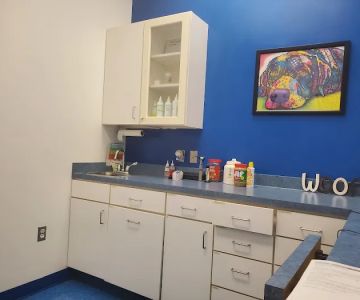Caring for a Pet with Pancreatitis: Understanding the Condition
Pancreatitis is a serious condition that affects pets, especially dogs and cats, and can lead to severe health complications. As a pet owner, understanding how to manage and care for a pet with pancreatitis is crucial for ensuring their recovery and improving their quality of life. In this article, I'll walk you through the basics of pancreatitis, symptoms to watch out for, and practical tips for caring for your pet during their treatment and recovery.
What is Pancreatitis in Pets?
Pancreatitis occurs when the pancreas becomes inflamed. The pancreas is a vital organ that helps digest food and regulate blood sugar. In pets, pancreatitis can be triggered by factors such as obesity, high-fat diets, infections, trauma, or certain medications. It can range from mild to severe, with severe cases leading to organ failure, shock, and potentially death. Recognizing the symptoms early on can greatly impact your pet's prognosis.
Symptoms of Pancreatitis in Pets
Symptoms of pancreatitis in pets can be difficult to spot at first, as they can be vague. Some common signs include:
- Loss of appetite
- Vomiting or diarrhea
- Abdominal pain (your pet may be sensitive when touched around the stomach area)
- Lethargy or weakness
- Dehydration
If you notice any of these signs, it's crucial to take your pet to the veterinarian as soon as possible. Early intervention can help prevent more severe complications.
Treating and Managing Pancreatitis
Once your pet is diagnosed with pancreatitis, the treatment plan will depend on the severity of the condition. In mild cases, your veterinarian may recommend rest, a change in diet, and medications to manage pain and inflammation. For more severe cases, your pet may require hospitalization for intravenous fluids, pain management, and nutritional support.
Dietary Management
Diet plays a critical role in managing pancreatitis. Your veterinarian will likely recommend a low-fat, easily digestible diet to reduce the strain on your pet's pancreas. During the recovery phase, feeding small, frequent meals rather than large ones can also help ease digestion and prevent further flare-ups. Avoiding table scraps and high-fat treats is essential for long-term management.
Regular Vet Checkups
After your pet has been treated for pancreatitis, regular vet visits are necessary to monitor their recovery and ensure that the inflammation does not return. Blood tests and ultrasounds may be recommended to assess the health of the pancreas and other organs. Consistent check-ups will help detect any recurring issues early on, improving your pet's chances of a full recovery.
Supporting Your Pet's Recovery at Home
While your pet undergoes recovery, there are several ways you can support their well-being at home:
- Provide a quiet, comfortable space for them to rest.
- Ensure they have constant access to fresh water to stay hydrated.
- Administer medications as prescribed by your veterinarian, and monitor for any side effects.
- Keep them on a prescribed diet and follow all dietary recommendations closely.
- Encourage light activity, but avoid strenuous exercise during the recovery period.
Signs of a Complication
It's essential to stay vigilant during your pet’s recovery. If you notice any signs of worsening condition, such as persistent vomiting, increased lethargy, or difficulty breathing, seek immediate veterinary attention. In some cases, pancreatitis can lead to complications like organ failure, and timely treatment is critical to prevent further harm.
Long-term Care for Pets with Pancreatitis
Pets that have recovered from pancreatitis may need to continue with dietary changes and regular vet visits for the rest of their lives. Pancreatitis can recur, especially if the underlying cause (like obesity or an unhealthy diet) is not addressed. Maintaining a healthy weight, feeding a balanced diet, and avoiding triggers like fatty foods will help manage the condition in the long term.
Conclusion: Prevention is Key
While you cannot always prevent pancreatitis in your pet, taking proactive measures can greatly reduce their risk. Feeding a balanced, low-fat diet, maintaining a healthy weight, and avoiding stressors that could trigger an attack are all key components in keeping your pet healthy and safe. Regular vet checkups are also vital to ensure your pet is living their best life. At Hidden Brook Veterinary, we are here to support you with advice and treatment options for managing pancreatitis and other conditions your pet may face.











